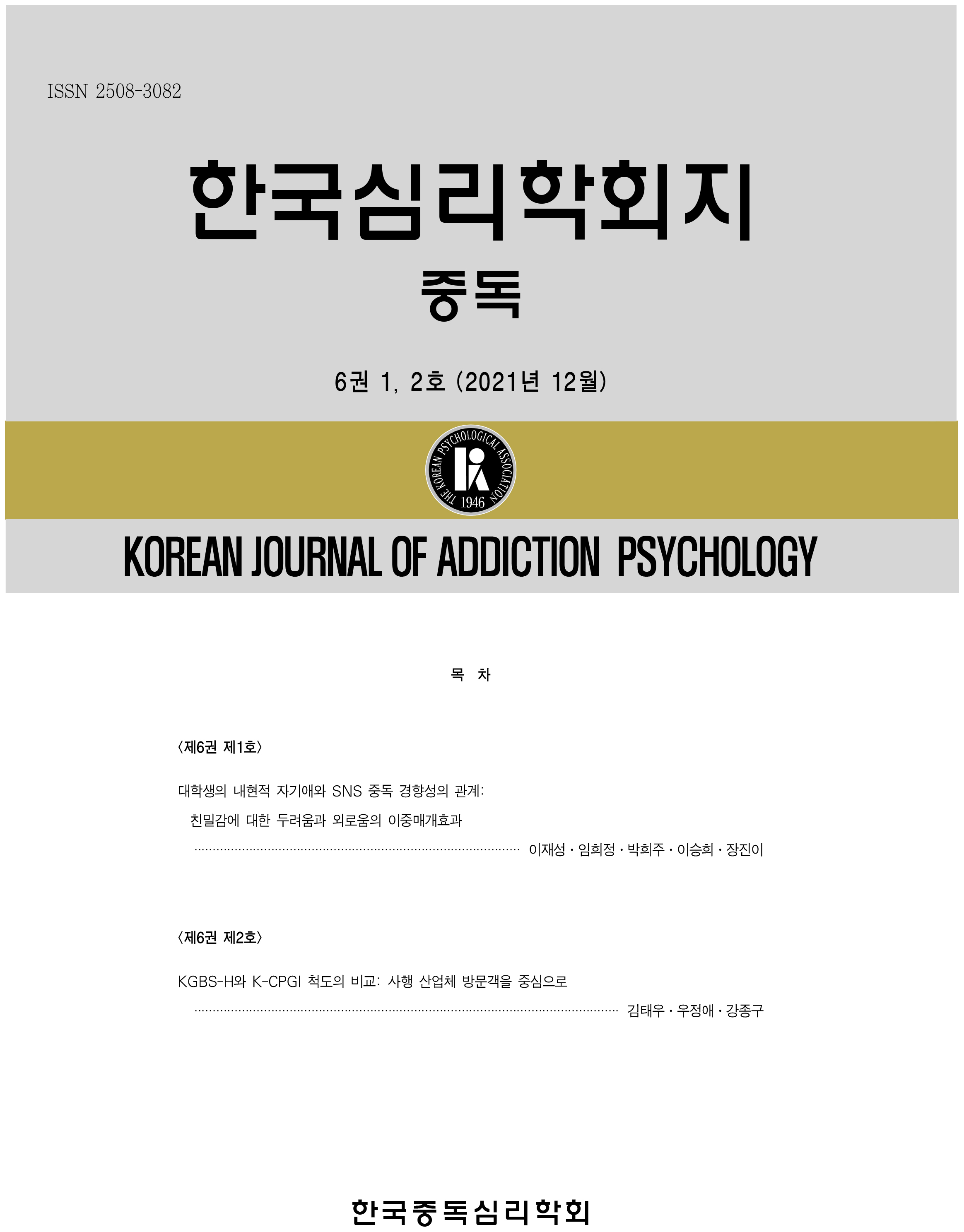Korean Journal of Addiction Psychology
- Log In/Sign Up
- P-ISSN2508-3082
 ISSN : 2508-3082
ISSN : 2508-3082
Vol.4 No.1
Abstract
The purpose of this study is to deeply understand how married women who use smart media excessively reconfigure and over - use experiences in marriage relationship and child relationship before and after marriage. The researchers selected 3 married women aged 20-30 within 10 years of marriage with infant children aged 3-5 years who overuse smart media. The research puzzle is how the experience of life before marriage forms an experience story after marriage using excessive use of smart media, and what marital relationship and child relationship story after marriage are alive. Data analysis was conducted by Clandinin and Connelly (2000) on the narrative inquiry procedure and the three - dimensional narrative search point of time, social, and place. Firstly, smart media was a refuge of emotions that we met in an environment where we can not express feelings freely. Second, smart media was a jar that accepted frustration when the irrational desire for marriage or expectation was frustrated. Third, smart media was a way to compensate for the lack of children who could not be a good mother. Based on these results, we discussed the experiences and meaning of life of married women who overuse smart media, and made suggestions for follow - up study.
Abstract
Post-traumatic stress associated with disasters is a potential risk factor for increased alcohol concumption or alcohol abuse/dependence. Moreover, alcohol misuse is often comorbid with PTSD, depression, and other psychological disorders. Thus, this study examined whether alcohol use and increased alcohol consumption among disaster victims differ from control group and whether increased alcohol consumption is associated with psychological disorders using "Establishment of Disaster victim relief services" research data performed by the National Disaster Management Research Institute(NDMI). Moreover, it was also examined risk and protective factors for greater alcohol consumption among disaster victims. The result revealed that the rate of current alcohol use was higher in control group than in disaster victims. However, the rate of increased alcohol consumption was 4 times higher in disaster victims than controls. Moreover, increased alcohol consumption in control group was not related to depression, whereas it was associated with PTSD, depression, and alcohol abuse/dependence among disaster victims. Risk and protective factors that contribute to greater alcohol consumption were disaster-related conflicts and psychological resilience, respectively. The results suggest that early intervention following disasters that reduces disaster-related conflicts and increases psychological resilience skills may have substantial benefit in reducing alcohol misuse in the medium to long term.
Abstract
This study briefly reports several issues related to the gaming disorder, which was officially included under a section of "Disorders due to Addictive Behaviors" in the 11th revision of International Classification of Diseases(ICD-11) on May 25 at the 72nd WHO assembly held in Geneva, Switzerland. First, we looked at the background and main events regarding the inclusion of gaming disorder in the ICD-11 and summarized its negative implications in terms of the definition, terminology, duration, and prevalence. Next, we went further and examined potential harms from the formalizing this disorder to our society. Finally, we provided suggestions for further research and countermeasures focused on psychosocial perspective.